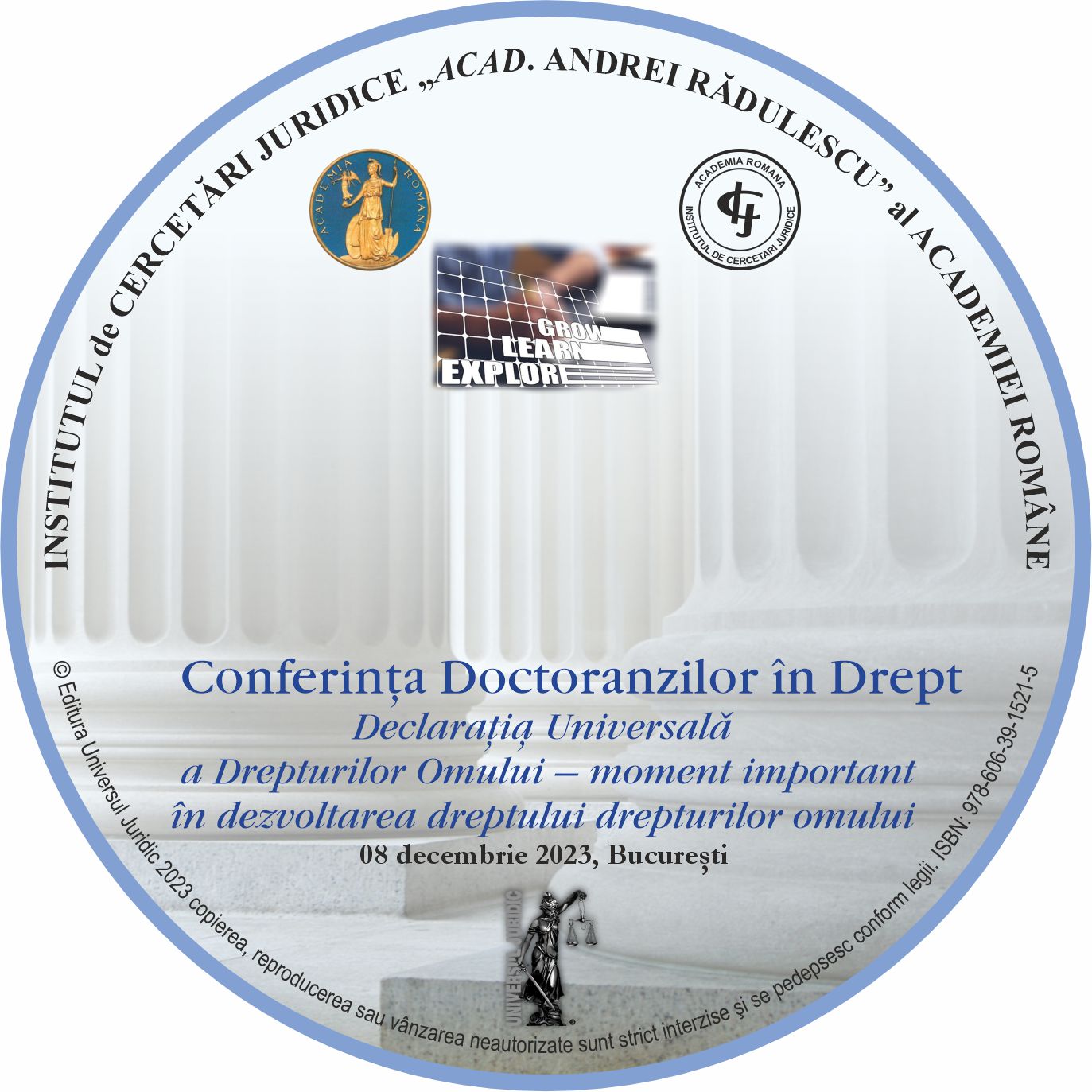Dreptul la viață privată și dreptul la liberă exprimare în Declarația Universală a Drepturilor Omului: complementaritate sau contradictorialitate?
The Right to Privacy and The Right to Freedom of Expression in The Universal Declaration of Human Rights: Complementarity or Contradiction ?
Author(s): Marius Catalin Mitrea
Subject(s): Law, Constitution, Jurisprudence
Published by: Universul Juridic
Keywords: United Nations; Fundamental Rights; Private Life; Freedom of Expression;
Summary/Abstract: The right to private life and the right to freedom of expression are enshrined in the Universal Declaration of Human Rights in art. 12, respectively in art. 19. The right to privacy recognizes that every individual has the right to the protection of his personal life, including personal data. This right is crucial to ensuring individual dignity and freedom. On the other hand, the right to freedom of expression gives every individual the right to express opinions and thoughts freely. These two rights may appear contradictory when, for example, discussions about the right to privacy may conflict with the disclosure of information in the name of freedom of expression or the public interest. However, the Universal Declaration of Human Rights tries to find a balance between these rights (art. 29, paragraph 2). Limits may be imposed on the right to privacy to protect national security or public safety, but these limits must be lawful, proportionate and justified.
- Page Range: 23-36
- Page Count: 14
- Publication Year: 2024
- Language: Romanian
- Content File-PDF

